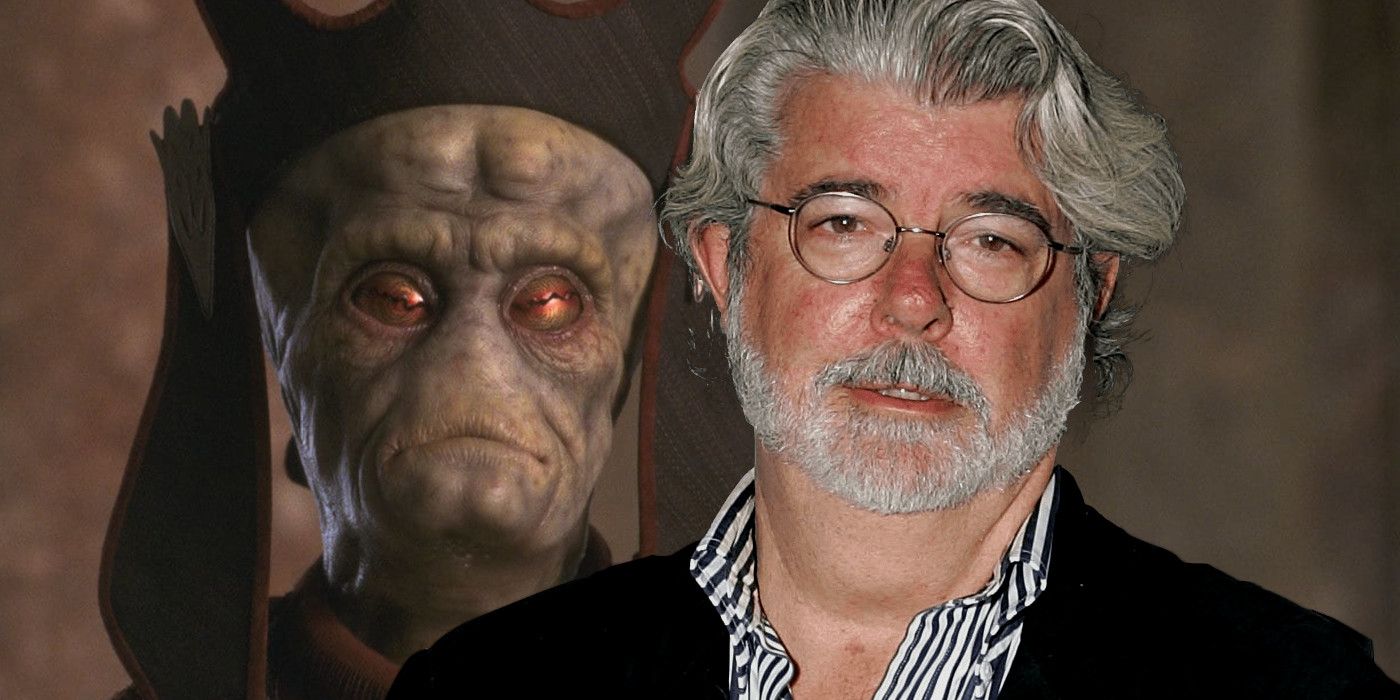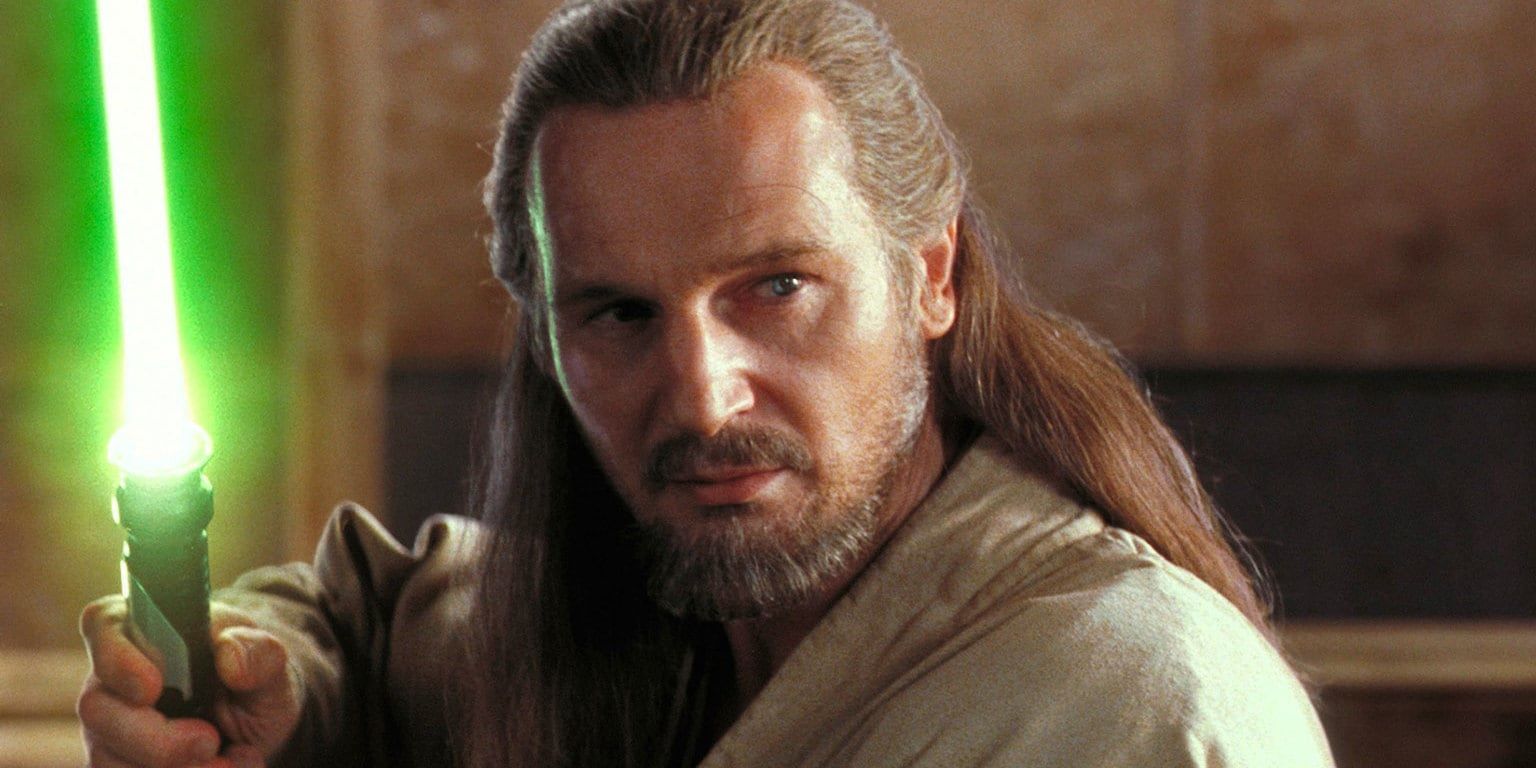George Lucas Defends The Phantom Menace's Trade Dispute Plot

George Lucas defends Star Wars: The Phantom Menace’s trade dispute plot. Released in 1999, The Phantom Menace marked the long-awaited return to the big screen for the beloved movie universe kicked off in 1977. Though the film grossed a massive $1.027 billion, its name quickly became associated with disappointment, as fans and critics expressed dismay at its failure to live up to the Star Wars legacy.
The many perceived failings of The Phantom Menace have of course been well-documented. At the top of that laundry list of complaints is the inclusion of Jar Jar Binks, a fully computer-generated character whose bumbling comic relief has been slammed for being wildly out-of-place in a Star Wars movie. Many also have raised objections to the film’s protagonist being a little kid, as Lucas attempted to portray the early years of future Sith Lord Anakin Skywalker. In addition, the movie is often slammed for having a senseless plot bogged down in badly developed details and for generally leaning too heavily on special effects.
Phantom Menace writer-director Lucas has now spent two decades defending his maligned Star Wars prequel trilogy, offering up explanations for the many controversial choices he made. With the release of the new book The Star Wars Archives: 1999–2005, which includes an interview with Lucas, the filmmaker has yet another chance to defend himself against the legions of prequel haters. When it comes to charges that the film had an unnecessarily complicated plot involving arcane details of galactic politics, Lucas insists in the new book that he was simply sticking to the reality of how human populations fall into conflict. “That’s how wars start,” Lucas says of the trade dispute that kicks off the story (via Polygon).

Lucas also defends the prequel trilogy’s tragic arc, which involves the fall of the Republic and the rise of the Empire (paralleling Anakin Skywalker’s turn to the Dark Side of the Force), and the emphasis on the political aspect of the story. He says “There’s no coup, there’s no rebellion, there’s no nothing. They vote it in, which is what happens in real life.”
There is indeed no disputing that history is full of examples of democracies falling because of political machinations and wars starting because of trade disputes. The question though is whether such events make good fodder for outer space adventure films supposedly aimed at children (Lucas has insisted that he saw Phantom Menace as a kids movie). The original Star Wars films certainly did not get caught up in galactic politics, keeping that aspect of the story far in the background while emphasizing action. The prequels of course have their share of action too, though many have maligned the films’ array of over-the-top lightsaber battles as lacking dramatic tension.
Lucas of course has defended many of his prequel decisions by insisting he was trying to do something new with the movies, an admirable goal. But even if one has good intentions, there’s still the matter of execution, which Lucas arguably fumbled badly on the prequels especially as regards the story’s political backdrop. Ultimately, in trying to expand Star Wars beyond whiz-bang sci-fi adventure, Lucas mostly exposed his own shortcomings as a writer, failing to generate the real sense of epic scope and rich world-building boasted by other sci-fi properties like the Dune books (which Lucas was clearly trying to emulate with many of his themes). Unfortunately, Lucas’ latest defense of Star Wars: The Phantom Menace and the other prequels will almost surely not sway any of the many Star Wars fans who were bitterly disappointed by the movies. But Lucas does also have an audience of prequel defenders, including Kanye West, who are ready to take up his cause.
Source: The Star Wars Archives: 1999-2005 (via Polygon)
from ScreenRant - Feed https://ift.tt/3nFfVD3
via Whole story

Post a Comment